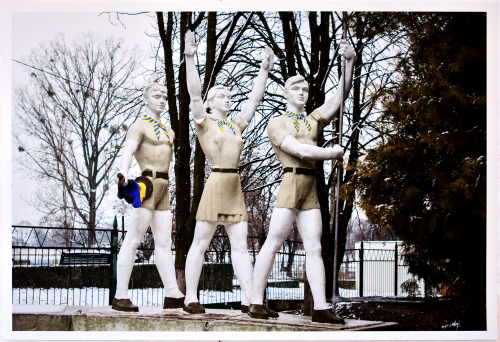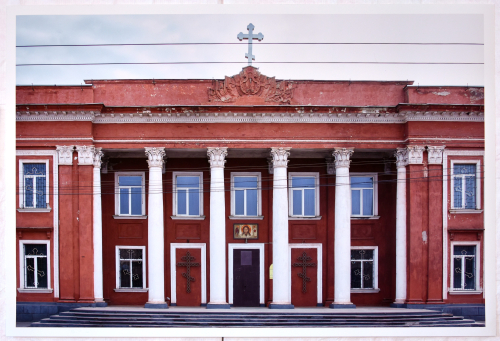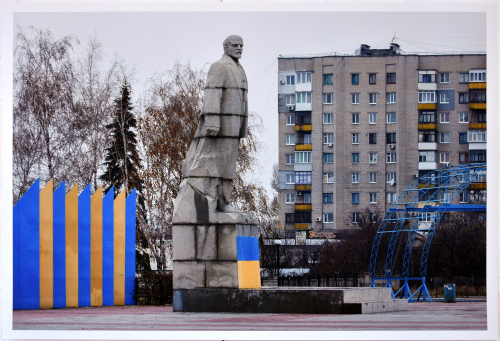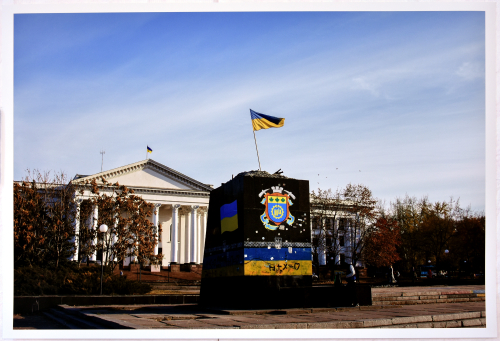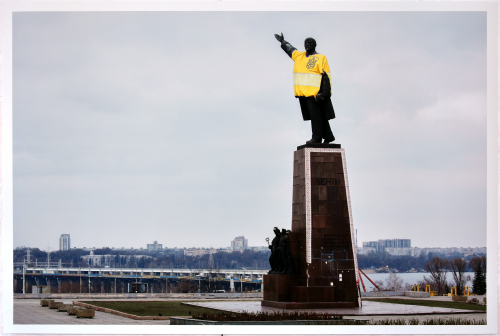Lives and works in Kyiv. He started to engage with photography in a professional manner in 2005. Since 2013 has been working on independent documentary projects. The main subject of the artist’s exploration is the urban environment that becomes the main "battlefield" for ideological collisions, the city that becomes the "map" of the invisible tensions that exist in the society. At the moment, Nikiforov's main project is an investigation of the collapse of the Soviet cultural heritage in Ukraine and the transformation of the public space after the Revolution of Dignity (2013-14). In April 2015, Verkhovna Rada of Ukraine adopted a law that condemned the communist and Nazi regimes as totalitarian and prohibited the corresponding symbols and propaganda. In practice, this so-called law on decommunization meant that all visual objects related to the commemoration of Soviet history, as well as monuments to communist leaders, had to be destroyed in the country. In large cities, the monuments were dismantled rather quickly, and this process has become known as “Leninopad” (The Fall of Lenins). But the further fate of little and distant objects is more ambiguous because in small towns and villages the political pressure of the center is felt less intensively. Decommunization and the contradictions, associated with it, are one of the most important subjects of contemporary Ukrainian art. The preservation of Soviet mosaics, which the current government of the country tried to destroy within the struggle against the ideological symbols of the totalitarian era, has become a unifying factor for a huge number of artists and activists. The result of a large-scale study of Soviet mosaics was the book by Yevgeny Nikiforov Decommunized: Soviet Mosaics in Ukraine, released by the Kyiv-based publishing house Osnovy in 2017. The war with Soviet monuments after the scandalous destruction of the statue of Lenin in Kyiv became a national Ukrainian sport during the Maidan. The new project of Nikiforov On Republic's Monuments is dedicated to mechanisms of memory and the complexities of their functioning. Yevgeny Nikiforov’s practice is an attempt to reflect the essence of the place that on account of the influence of time or economic, social, and natural factors is in a transitional state. Numerous granite chieftains, plaster pioneers, cast iron soldiers and stone workers appear redone, vandalized, concealed or decorated. Nikiforov’s project (On Republic’s Monuments - series) challenges the "double bottom" of the official policy of memory and draws attention to the lack of civilized mechanisms to work with the past in modern Ukraine.



